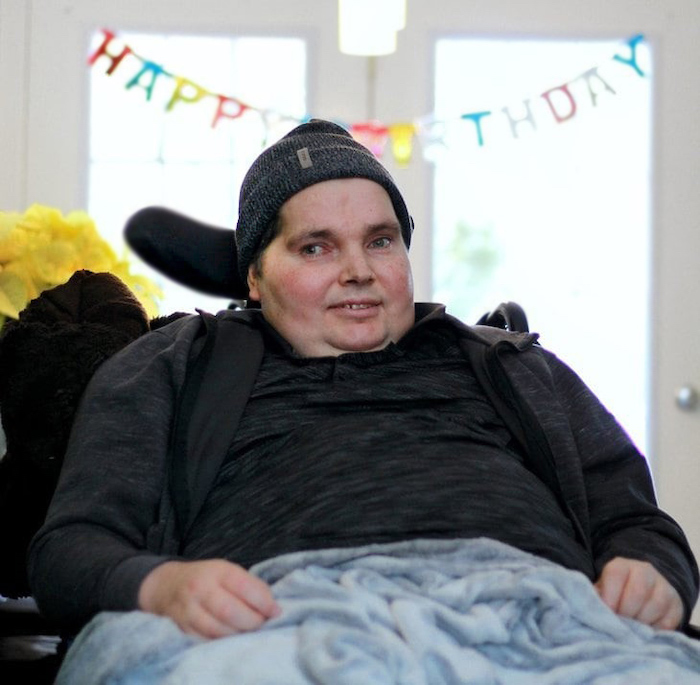Derek Schuurman was Hans Oussoren’s brother-in-law, is a husband to Carina, and an Associate Fellow of the Kirby Laing Centre. This story originally appeared in Christian Courier (www.christiancourier.ca).
They say that when you get married you not only join a spouse but a whole family. When I got married to my wife Carina, I gained several new siblings, including a new brother-in-law named Hans.
Hans is the youngest in the family, only 12 years old when Carina and I were married. He was a healthy boy, growing up on their family farm and aspiring one day to be a farmer himself. He was also extremely social, able to strike a conversation with almost anyone. And he often did.
Shortly after our wedding, I came home to find my wife in tears. She had just received a call with the tragic news that Hans had been diagnosed with a brain tumour. We were shocked and we feared the worst. Throughout the scans and tests that followed we were encouraged by a great cloud of believers who were praying for Hans.
In the following months, my in-laws navigated a confusing labyrinth of medical options and opinions, special diets and anti-seizure medications (some of which came with difficult side-effects). Despite the precarious location and shape of the tumour, the decision was made to operate. After a long and complex surgical procedure, we received the news: the tumour was partially removed but the prognosis going forward was uncertain.
Hans eventually returned to school and regular life; his ability to return to regular activities was an answer to many prayers. But our prayers continued with the uneasy fear of the tumour growing. Along the way, Hans endured various challenges including issues with his memory.
But there were also times of joy. Hans graduated from high school and then agricultural college. He met a young woman, Rachel, and they were soon married. Just as he always dreamed, Hans took over part of the family farm near Peterborough, and soon two children came along.
As the years passed, however, Hans endured increasing memory loss and seizures. In time, the seizures became more frequent and accompanied by other symptoms, like narcolepsy. One day in 2017, a scan revealed bleeding around his tumour and doctors recommended emergency brain surgery.

Throughout Hans’s journey, I had been bewildered with how he remained upbeat and unwavering in his faith. As he waited for surgery, I had a conversation with Hans, expressing respect for his faith which I had observed through many times of challenge.
That turned out to be the last conversation I had with Hans. The surgeon emerged with grim news – the delicate procedure had been challenging, and Hans did not appear to be very responsive. We could see that something was not right.
Since that day, Hans has only been able to communicate using a few occasional words and limited gestures. He is no longer able to walk and lives in a long-term care facility. Regular visits from his wife and family reveal occasional glimmers of recognition, but it’s hard to know how much he understands. As a sociable person, Hans is now trapped in a body with a limited ability to communicate.
Events like this make one question the Heidelberg Catechism which declares that “health and sickness, riches and poverty, indeed, all things come not by chance, but by His fatherly hand” (Q&A 27). I am comforted that things “come not by chance,” but does Hans’s situation really come “by His fatherly hand”?
We have fervently prayed for Hans’s healing, but he remains in a nursing home. I have found the words of Daniel 3:18 instructive: Shadrach, Meshach and Abednego declare that God can save them from the fiery furnace, but they conclude by saying “even if he does not,” they will still trust in God. I know God can heal Hans, but even if not, we need to continue trusting God.
Although I can’t ask him, I believe that Hans’s strong faith persists through his challenges. Perhaps Q&A 27 of the Heidelberg Catechism is best understood in the light of Q&A 1, that “I am not my own, but belong body and soul, in life and in death to my faithful Saviour, Jesus Christ” and that somehow, “all things must work together for my salvation” – a salvation that will include the complete restoration of our bodies. May God grant us, and Hans, that hope and comfort.
Postscript: On Tuesday, March 8, 2022 in Owen Sound, Ontario, Canada, a few months after this piece was written, Hans Oussoren passed away.

The Kirby Laing Centre for Public Theology in Cambridge. Charity registered in England and Wales. Charity Number: 1191741
Kirby Laing Centre, The New Mill House, Unit 1, Chesterton Mill, French’s Road, Cambridge, CB4 3NP
© 2022 The Kirby Laing Centre for Public Theology in Cambridge